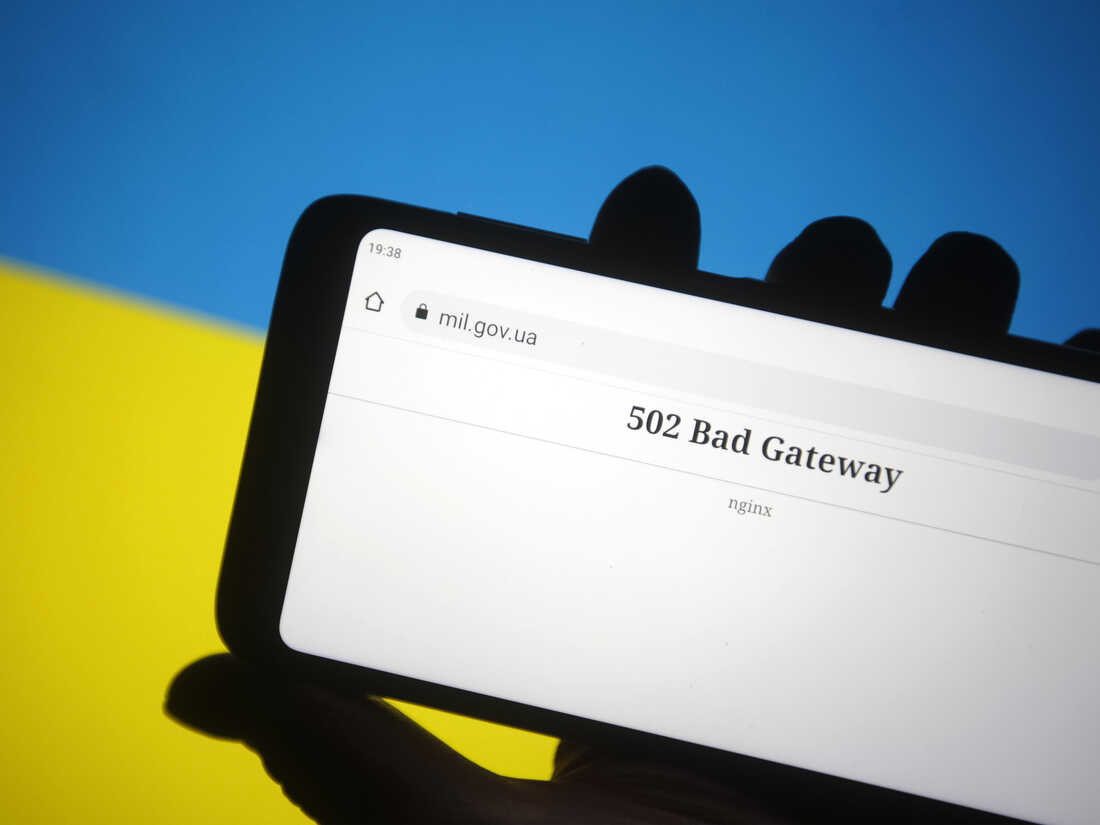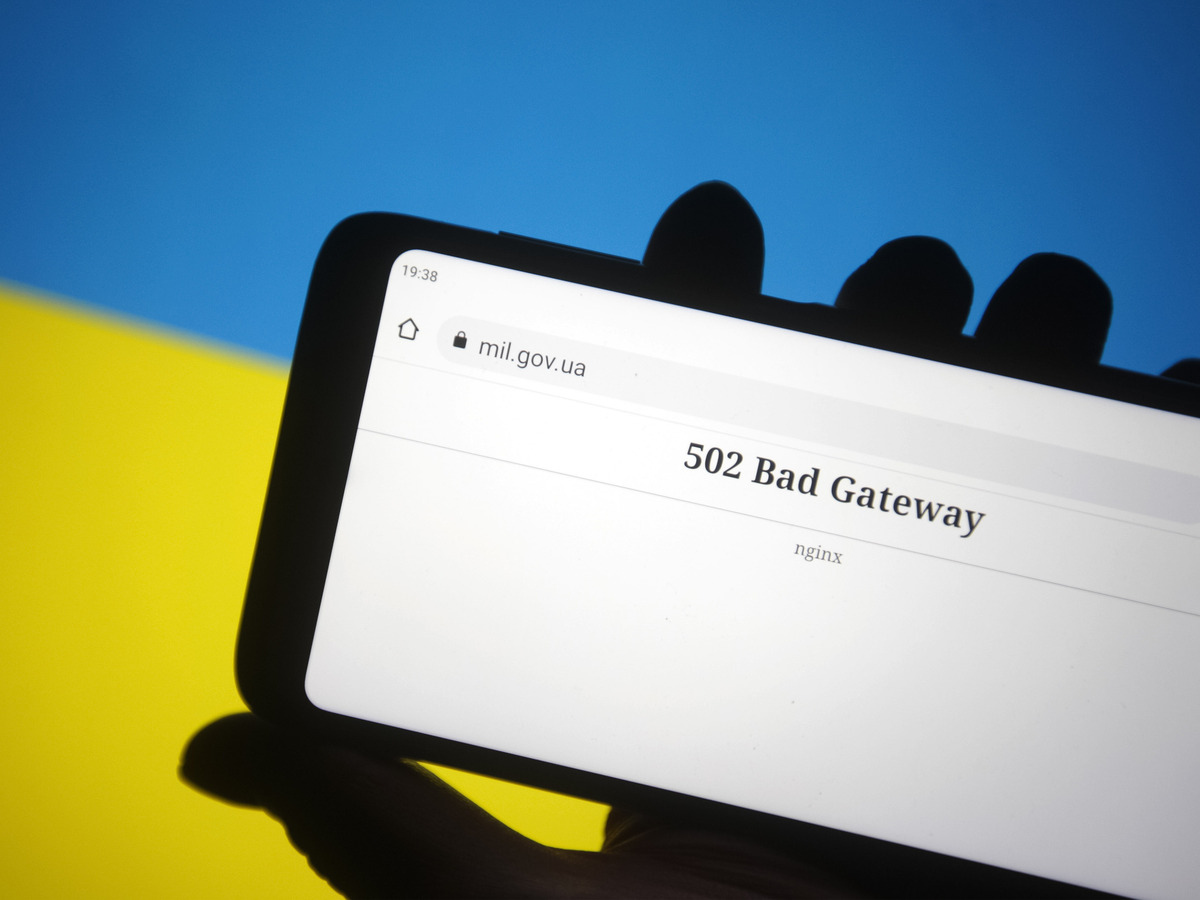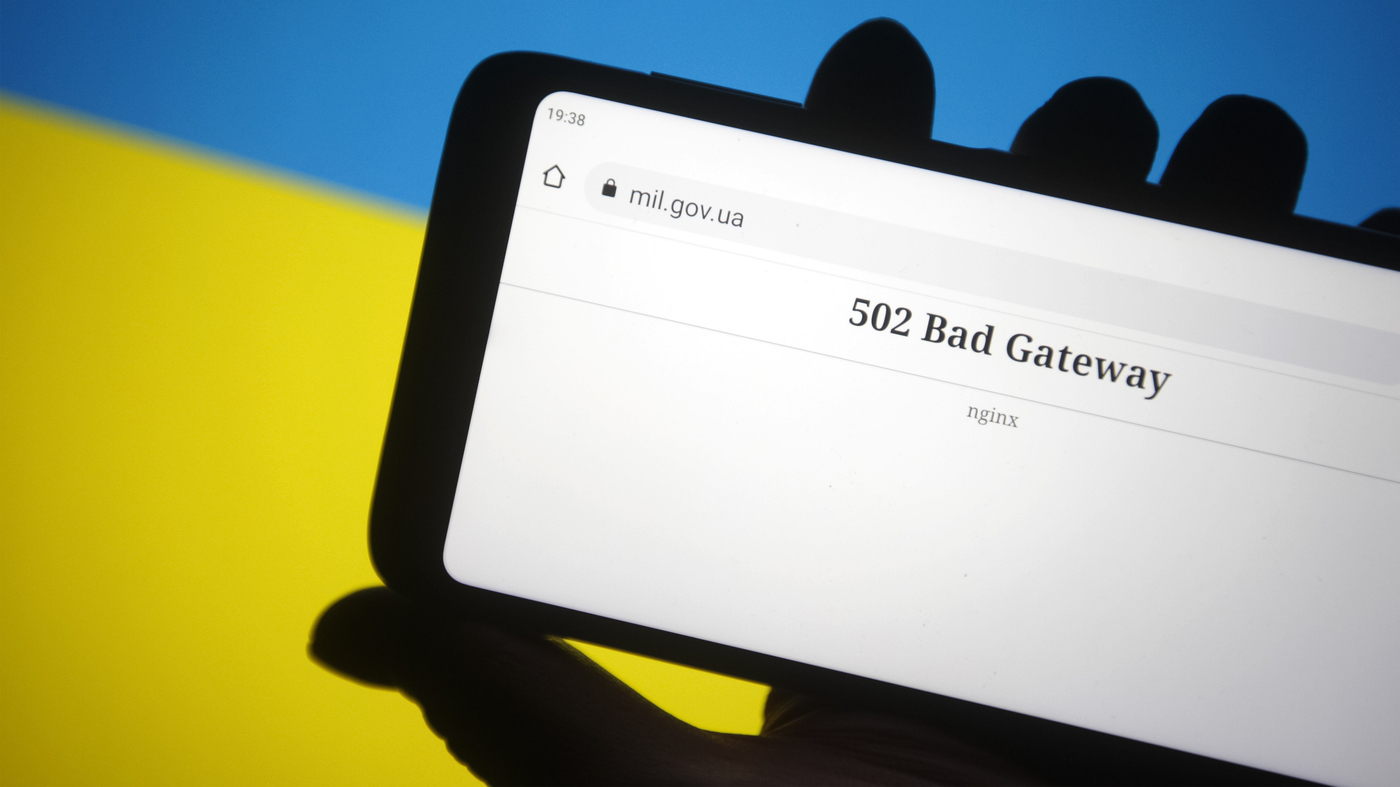Inside Russia’s attempts to hack Ukrainian military operations : NPR

In this photo illustration, the 502 Bad Gateway message is seen on Ministry of Defence of Ukraine official webpage displayed on a smartphone screen and flag of Ukraine in the background.
SOPA Images/LightRocket via Getty Images
hide caption
toggle caption
SOPA Images/LightRocket via Getty Images

In this photo illustration, the 502 Bad Gateway message is seen on Ministry of Defence of Ukraine official webpage displayed on a smartphone screen and flag of Ukraine in the background.
SOPA Images/LightRocket via Getty Images
KYIV, Ukraine — Ukrainian intelligence officials have revealed details to NPR about an attempt by Russian state hackers to penetrate Ukrainian military planning operations systems.
The hackers from Russian military intelligence captured Android tablet devices used by Ukrainian officers on the front lines in an attempt to spy, according to a report published by the Security Service of Ukraine’s Cyber Security Situation Center.
“We saw that there were attempts to penetrate these systems,” said Illia Vitiuk, the head of the Cybersecurity Department of Ukraine’s Security Services, also known as the SBU. Vitiuk spoke to NPR in an exclusive interview in Kyiv on Wednesday.
“Our enemy is extremely focused on getting insight into these systems,” he continued.
The Ukrainian military uses multiple tools for situational awareness to track Russian troop positions and gather other intelligence from the land, air and sea. Those include Delta, a military platform developed by the Defense Technology Innovation and Development Center within Ukraine’s Ministry of Defense, and Kropvya, a defense mapping software made by Ukrainian NGO Army SOS. Developers working on these systems in Kyiv are becoming increasingly aware of Russia’s focus on them, and are declining to openly discuss the platforms and how they work to…



